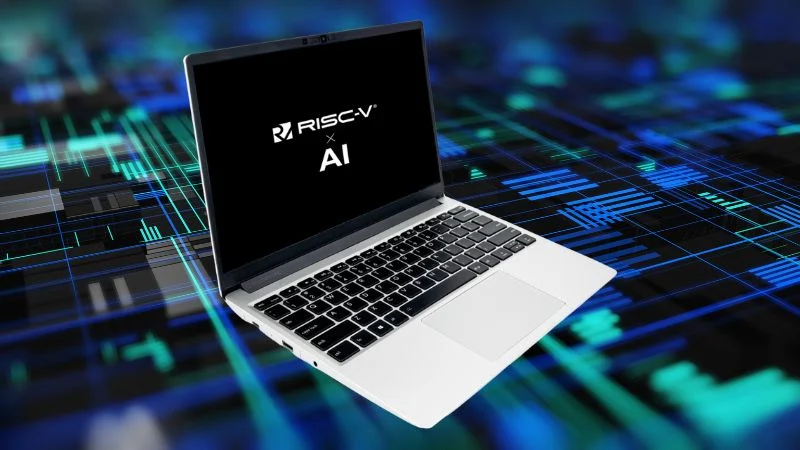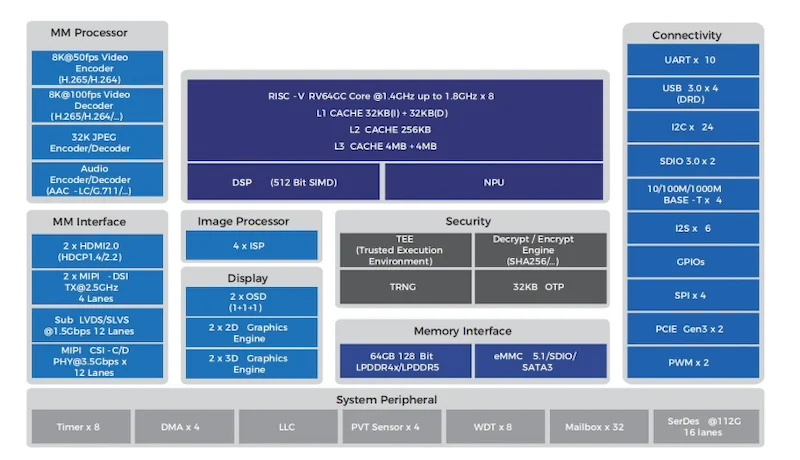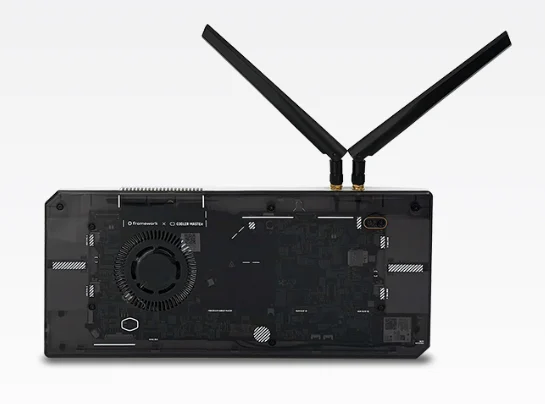As RISC-V gains popularity and maturity, one vertical that is increasing adoption is personal computing. Recently, DeepComputing launched DC-ROMA AI PC , an AI PC built on RISC-V hardware. This follows the company's DC-ROMA Laptop II PC, which was released back in October 2024.

DC-ROMA RISC-V AI PC.
Introducing DC-ROMA AI PC
According to DeepComputing, DC-ROMA AI PCis a fully modular, edge-ready computing platform for RISC-V developers.
At the heart of the system is Eswin’s EIC7702X SoC , which integrates eight out-of-order SiFive P550 cores operating up to 2.0 GHz, alongside a 40 TOPS neural processing unit and a 512-bit-wide vector processing cluster. This combination allows the system to exceed 50 TOPS of aggregate AI compute throughput. The architecture supports real-time inference workloads such as large language models and multi-modal AI directly on-device.

Eswin’s EIC7702X SoC functional diagram.
The PC uses the Framework Laptop 13’s modular ecosystem so that developers can replace or upgrade components without reengineering the entire system. The mainboard includes 32 GB of memory with LPDDR5 support up to 64 GB, and SSD options ranging from 256 GB to 1 TB, with additional eMMC and TF card support. An integrated Imagination GPU supports high-resolution media applications, while hardware video encoding scales up to 8K at 50 fps. I/O includes four USB Type-C ports, two with power delivery and DisplayPort 1.4 compatibility, and a 3.5-mm headphone jack with dual MEMS microphones and stereo speakers.
A Boon for RISC-V Developers
DeepComputing claims DC-ROMA AI PC marks a major shift in how the RISC-V developer community can approach AI-native application development.
Historically, RISC-V platforms have served as low-power microcontroller targets or academic reference designs. While these use cases have been important to the ecosystem’s growth, they have limited real-world software development to peripheral functions rather than full-system execution.
The DC-ROMA AI PC release changes that. By combining eight out-of-order SiFive P550 cores with a 40 TOPS NPU and vector processing support in a modular laptop form factor, the DC-ROMA platform provides developers with a complete RISC-V development and deployment environment that can handle modern AI workloads.

DC-ROMA RISC-V AI PC Mini.
Developers can now prototype, compile, and natively run AI models entirely on RISC-V without cross-compiling or simulating on x86 or Arm platforms. With preinstalled Ubuntu Desktop 24.04 LTS, the system fits well with standard open-source tooling, ML libraries, compiler toolchains, and containerized workflows.
Beyond hardware access, this release validates the commercial potential of RISC-V in high-performance client-side computing. It signals to open-source contributors that their work on software stacks can directly benefit from and contribute to real hardware deployments. Meanwhile, the sub-$400 price point lowers the barrier to entry for meaningful RISC-V experimentation.
An Open-Source Future
By consolidating compute, inference, and development into one modular device, DC-ROMA AI PC hopes to offer a concrete response to the limitations of cloud-reliant AI workflows. For those ready to move from simulation to native deployment, pre-orders for the DC-ROMA RISC-V AI PC are now open through DeepComputing. Units will also be featured at RISC-V Summit Europe and Computex Taipei later this year.
 English
English
